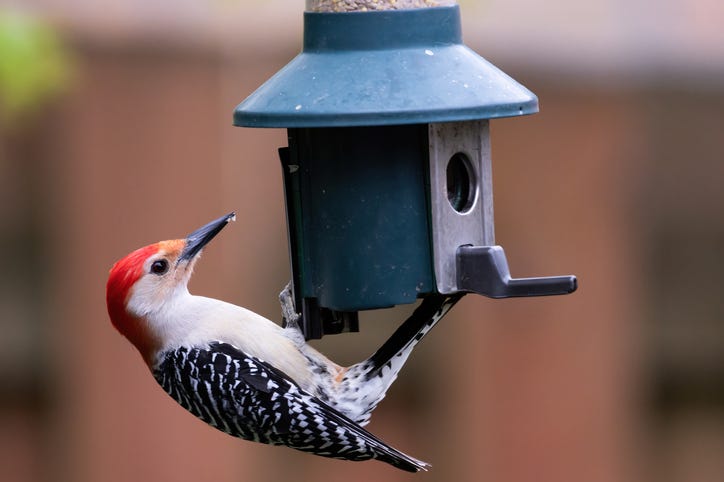
(WWJ) Do you have a bird feeder outside your home? If so, state wildlife experts are asking you to consider putting it away.
The Michigan Department of Natural Resources is urging residents to remove their bird feeders this spring and summer to avoid attracting, and experiencing problematic interactions with wild bears.
The black bear’s winter slumber will soon be over, according to the DNR, when in late March to early May bears leave their dens and begin looking for food to replenish their bodies. "As they rejoin us in search of nourishment, it's important to remember that human behavior affects bear behavior," the DNR said in a news release.
With that in mind, DNR experts have released a list of tips for "preventing problem bear behavior" this spring.
#1 on the list: Remove bird feeders during the spring, summer and fall. Birds have an abundance of natural food sources during these seasons, the DNR says. If you like viewing birds from the comfort of your home, consider planting native flowers and shrubs this spring that will draw birds in. Even a small planter of native wildflowers will do the trick. Planting native species for the first time can be a daunting task, but Audubon’s Plants for Birds database can help, providing information about which important food sources each native plant provides, which birds they attract, where to plant and numerous additional resources for amateurs and green thumbs alike.
Tip 2: Bring in outdoor pet food and keep grills and patio furniture clean. A bear’s ability to smell far exceeds the human nose. While you may not be able to smell the pet food and spills on your patio, a bear certainly can.
Tip 3: Secure dumpsters and keep garbage cans indoors overnight. Take garbage cans to the curb the morning of pickup. While it may add a few more minutes to your morning routine, it is still faster than having to clean up garbage contents strewn across your yard from a hungry critter looking for a midnight snack. It also may prevent a bear from finding additional reasons to hang around your property.
Tip 4: Protect beehives with electric fencing, especially if the apiary is in a rural or forested area. Recommendations for materials and design of the fence can be found here: Protect Your Beehives from Black Bears.
This one might be a no-brainer, but the also DNR reminds the public to never intentionally feed a bear.
"Just like humans waking from a long nap, bears first look for water, often drinking from rivers and ponds or eating snow. Their early spring menu consists of last year’s vegetation, salvaged carcasses and fresh green shoots as they emerge," said Rachel Leightner, Michigan DNR wildlife outreach coordinator. "Though these food sources are readily available, it is difficult to resist the calorie-rich offerings of bird seed, garbage, beehives and pet foods."
"You might consider watching bears forage near your home as an exciting chance to see wildlife up close. But what’s really happening could be very troublesome for both you and the bear," Leightner added.
Black bears can be found in both the Upper and Lower Peninsulas.
If you do encounter a bear, the DNR says you should stand your ground, and do not run or play dead. Make loud noises and back away slowly, while always providing a clear, unobstructed escape route for the bear.
Rarely do bears attack people, the DNR says, but if they do you should fight back.
For more information and tips for avoiding problems with bears and other wild animals in Michigan, visit this link.


